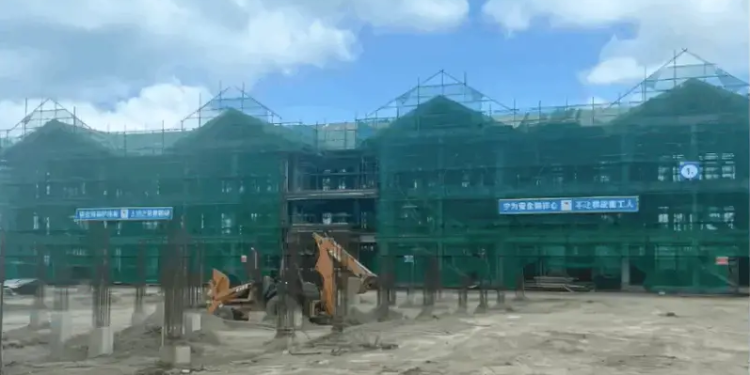The Booby Alley redevelopment initiative continues to garner national attention as construction progresses rapidly. The transformation of this area into a state-of-the-art residential condominium community represents one of the most significant and socially empowering projects in Antigua and Barbuda.
However, alongside this physical transformation, Prime Minister Gaston Browne emphasized the equally critical need for cultural and behavioral upliftment among the project’s beneficiaries.
Speaking about the project brings much joy and satisfaction for PM Browne, who had to endure opposition-backed protests and several other forms of resistance as there was an organized move to derail the project, by any means necessary.
However, the prime minister persevered and today the project, while still in the construction phase, is already attraction national attention and admiration.
The Prime Minister shared updates and visuals of the new condominium blocks, which are now well into the advanced stages of construction. One particular unit—directly across the street from a resident known as Comrade Tila—has drawn interest for its coveted penthouse. While humorous in tone, Browne stressed that unit allocation will follow transparent and merit-based procedures.
According to PM Browne as the redevelopment of Booby Alley continues to take shape, it represents not only as a physical transformation but as a deep investment in community upliftment. The Prime Minister outlined the aesthetic and social goals of the project—drawing comparisons to condominiums in Miami with palm trees, panoramic sea views, and modern living standards. This vision is deliberately aimed at breaking cycles of poverty and stagnation commonly linked to poor housing conditions.
Numerous sociological studies, he noted, affirm that substandard housing environments often attract and nurture criminal elements. In contrast, by creating a clean, beautiful, and orderly living space, the government hopes to discourage criminal activity from taking root in the community. The Prime Minister pointed out that if the area is well-maintained, individuals inclined toward illegal behavior would be less likely to frequent or settle there.
He added that a significant feature of the new units is their climate resilience. Constructed from concrete—including what appears to be concrete roofing—these buildings are designed to withstand the elements and last for generations. The Prime Minister emphasized that these units will be more climate-resilient than 90% of properties in the country.
Ventilation has also been a key design consideration. Each unit is fitted with multiple windows to ensure airflow, thus minimizing the risk of mold that often plagues poorly ventilated spaces. This is particularly important in tropical climates where humidity can quickly lead to structural and health issues.
While the government is offering these housing units at nominal rents—or in some cases, free of charge—the expectation is that residents must take responsibility for their utilities. The Prime Minister dismissed any notion that the government would cover electricity or water bills indefinitely, emphasizing that while these are subsidized offerings, there can be no “free lunch.”
Another important consideration is the inclusion of commercial or communal utility spaces within the development. The Prime Minister suggested that some ground floor units could be converted into laundromats, salons, or small shops. This is both an aesthetic and practical move—minimizing unsightly clotheslines on balconies and providing convenient services to residents.
These ground-floor businesses would also stimulate small-scale economic activity within the community. Even if detailed plans for these business units haven’t been finalized, he stressed that they would be incorporated if missing from the current design.



